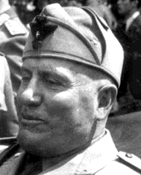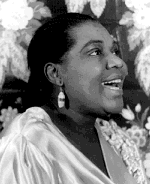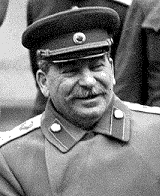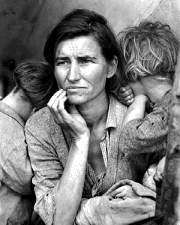- 1920
- League of Nations holds first meeting at Geneva, Switzerland. U.S. Dept. of Justice red hunt nets thousands of radicals; aliens deported. Women's suffrage (19th) amendment ratified. Treaty of Sevres dissolves Ottoman Empire. First Agatha Christie mystery. Sinclair Lewis's Main Street.
- 1921
- Reparations Commission fixes German liability at 132 billion gold marks. German inflation begins. Major treaties signed at Washington Disarmament Conference limit naval tonnage and pledge to respect territorial integrity of China. In U.S., Nicola Sacco and Bartolomeo Vanzetti, Italian-born anarchists, convicted of armed robbery murder; case stirs world-wide protests; they are executed in 1927.
- 1922
- Mussolini marches on Rome; forms Fascist government. Irish Free State, a self-governing dominion of British Empire, officially proclaimed. Kemal Ataturk, founder of modern Turkey, overthrows last sultan. James Joyce's Ulysses.
- 1923
- Adolf Hitler's “Beer Hall Putsch” in Munich fails; in 1924 he is sentenced to five years in prison where he writes Mein Kampf; released after eight months. Occupation of Ruhr by French and Belgian troops to enforce reparations payments. Widespread Ku Klux Klan violence in U.S. Earthquake destroys third of Tokyo. George Gershwin's Rhapsody in Blue. Bessie Smith, known as “the Empress of the Blues,” makes her first record. Irish poet William Butler Yeats wins Nobel Prize in Literature.
- 1924
- Death of Lenin; Stalin wins power struggle, rules as Soviet dictator until death in 1953. Italian Fascists murder Socialist leader Giacomo Matteotti. Interior Secretary Albert B. Fall and oilmen Harry Sinclair and Edward L. Doheny are charged with conspiracy and bribery in the Teapot Dome scandal, involving fraudulent leases of naval oil reserves. In 1931, Fall is sentenced to year in prison; Doheny and Sinclair acquitted of bribery. Nathan Leopold and Richard Loeb convicted in “thrill killing” of Bobby Franks in Chicago; defended by Clarence Darrow; sentenced to life imprisonment. (Loeb killed by fellow convict in 1936; Leopold paroled in 1958, dies in 1971.) Robert Frost wins first of four Pulitzers.
- 1925
- Nellie Tayloe Ross elected governor of Wyoming; first woman governor elected in U.S. Locarno conferences seek to secure European peace by mutual guarantees. John T. Scopes convicted and fined for teaching evolution in a public school in Tennessee “Monkey Trial”; sentence set aside. John Logie Baird, Scottish inventor, transmits human features by television. Hitler publishes Volume I of Mein Kampf.
- 1926
- General strike in Britain brings nation's activities to standstill. U.S. marines dispatched to Nicaragua during revolt; they remain until 1933. Gertrude Ederle of U.S. is first woman to swim English Channel. Ernest Hemingway's The Sun Also Rises.
- 1927
- German economy collapses. Socialists riot in Vienna; general strike follows acquittal of Nazis for political murder. Trotsky expelled from Russian Communist Party. Charles A. Lindbergh flies first successful solo non-stop flight from New York to Paris. Ruth Snyder and Judd Gray convicted of murder of Albert Snyder; they are executed at Sing Sing prison in 1928. Philo T. Farnsworth demonstrates working television model. Georges Lemaitre proposes Big Bang Theory. Babe Ruth hits 60 home runs in the season; record stands for next 34 years. The Jazz Singer, with Al Jolson, first part-talking motion picture.
- 1928
- Kellogg-Briand Pact, outlawing war, signed in Paris by 65 nations. Alexander Fleming discovers penicillin. Richard E. Byrd starts expedition to Antarctic; returns in 1930. Anthropologist Margaret Mead publishes Coming of Age in Samoa. Oxford English Dictionary published after 44 years of research.
- 1929
- Trotsky expelled from U.S.S.R. Lateran Treaty establishes independent Vatican City. In U.S., stock market prices collapse, with U.S. securities losing $26 billion—first phase of Depression and world economic crisis. St. Valentine's Day gangland massacre in Chicago. Edwin Powell Hubble proposes theory of expanding universe.








